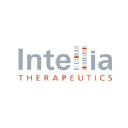Companies
Discover all trending biotech companies
Discover all trending biotech companies

Company Research Platform
Annual Revenue
$ 16,600,000
Global Employees
403
This segment focuses on the development of in vivo gene editing therapies, where the CRISPR/Cas9 system is delivered directly into the patient's body. Research and development activities include identifying and validating therapeutic targets, designing guide RNAs, and optimizing delivery methods, such as lipid nanoparticles. The primary technology used is the CRISPR/Cas9 platform. Therapeutic areas include transthyretin amyloidosis (TTR), hereditary angioedema (HAE), hemophilia A and B, hyperoxaluria Type 1, and alpha-1 antitrypsin deficiency. The goal is to provide potentially curative treatments for patients with these genetic diseases, improving their quality of life and potentially extending their lifespan. Market positioning is based on being a leader in CRISPR-based in vivo therapies. Future opportunities include expanding the pipeline to other genetic diseases and improving the efficiency and safety of the delivery systems. Clinical trials are a critical aspect of this segment, with regulatory approvals from agencies like the FDA being essential for commercialization. Partnerships with companies like Regeneron are crucial for co-developing and commercializing products in this area.
This segment concentrates on developing ex vivo cell therapies, where cells are edited outside the body and then transplanted back into the patient. Research and development activities involve engineering immune cells, such as T cells, to target and destroy cancer cells or correct genetic defects. The core technology is the CRISPR/Cas9 system, used to modify the cells. Therapeutic areas include acute myeloid leukemia (AML) and other oncological and autoimmune disorders. The patient impact is significant, as these therapies have the potential to provide durable responses and improve survival rates for patients with difficult-to-treat cancers. Market positioning is based on developing innovative cell therapies. Future opportunities include expanding the pipeline to other cancer types and autoimmune diseases, and improving the efficacy and safety of cell-based therapies. Clinical trials are essential for demonstrating the safety and efficacy of these therapies, and regulatory approvals are required for commercialization. Partnerships with other companies may be necessary to advance these therapies.
This segment encompasses the core technology platform of Intellia Therapeutics: the CRISPR/Cas9 system. Research and development activities focus on improving the efficiency, specificity, and delivery of the CRISPR/Cas9 system. This includes developing novel guide RNAs, Cas9 variants, and delivery methods, such as lipid nanoparticles. The technology is applied across all therapeutic areas, including in vivo and ex vivo programs. The patient impact is indirect but significant, as improvements in the technology platform enhance the effectiveness and safety of all Intellia's therapeutic programs. Market positioning is based on being a leader in CRISPR technology. Future opportunities include licensing the technology to other companies and developing new applications for the technology. Regulatory aspects include obtaining patents and complying with guidelines for gene editing technologies. Partnerships with other companies, such as Novartis, are important for expanding the use of the technology.